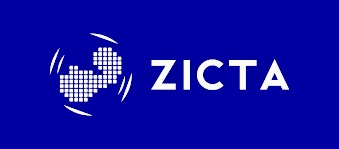LIVINGSTONE (The Business Telegraph): The telecoms regulator in Africa’s copper hot spot Zambia on 03 September announced a K5.4million ($275k) fine on the top three Mobile Network Operators – MNOs cumulatively for various unbridled service delivery ranging from network provision to other internet related operational failures impacting end users.
Zambia Information Communication Technology Authority – ZICTA in a memo fined Airtel Zambia Plc K4.5million, Zamtel Ltd K450k while MTN Zambia was fined K225k.
The behavioral economics of fines. The Zambian telecoms regulator is well mandated to fine the telcos for poor service and other operational failures for up to 10% of annual turnover. Fining MNOs in Zambia does not come as a surprise as generally the outcry has been that service provision continued to range between deteriorating to sub optimal. Are these fines able to drive the right behavioural change? The argument has been for most analysts that if the fine is a fraction of the the cost of the equipment needed to ramp up service, then it is unlikely that the right and desired behavior will be achieved by the regulator. The world continues to see fines for various compliance breaches and the rationale behind the quantum is to ensure non recurrence and drive the right behavior.
With reference to the likes of UBS, Stanchart, Deustche Banks have been fined by respective regulators while just a few years ago MTN was slapped with a record fine by the Nigerian authorities for non compliance. The Zambian regulator can pick a leaf from the gravity of fines globally that drive optimal behavioral change for fines to make economic sense.
The regulator has for quite sometime fined MNOs with very similar non-compliance of standards which given the repetitive nature suggests a degree of complacency. Most MNOs have cited the surge in demand for telecoms service, especially internet in the absence of higher augmentation for equipment to cater for new ways of work virtually, to the poor service in the period. Further that even if augmentation was to be addressed by higher investment in equipment to improved service, lock down protocols have caused service disruptions that will delay transportation of these assets in the period.
However other analysts believe the size of the fines should be wider and more punitive to drive the right behaviors lest these marginal amounts be budgeted for as service delivery remains shoddy. Zambia telecoms industry remains oligopolistic with a few players offering services. The Southern African nation opened up licensing to a fourth MNO UZI Ltd whose penetration was marred by high set up and investment costs. The more service providers Zambia has the higher the competitive landscape this will provide as the sector moves towards a perfectly competitive space in economic market model.
The Kwacha Arbitrageur

